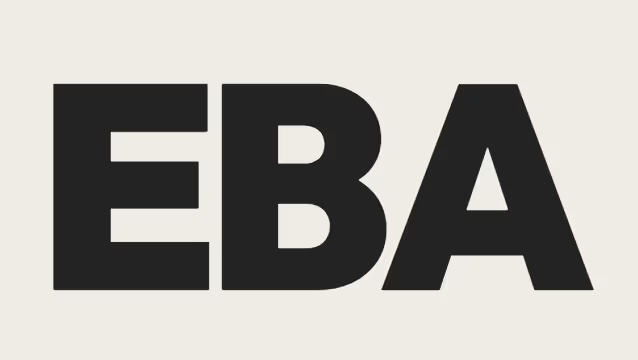My thoughts & insights on what I learn from European Business Athlete

TOP 5 PLAYERS THAT RETIRED THIS SEASON AND THEIR LIFE AFTER FOOTBALL
The Future of Content Management Systems
The landscape of Content Management Systems is constantly evolving. As technology advances, several trends are shaping the future of CMS:
1. Headless CMS
Headless CMS architecture allows for greater flexibility by separating the content management backend from the frontend presentation.
2. AI Integration
Artificial Intelligence is being integrated into CMS platforms to enhance user experience and automate content creation.
3. Enhanced Security Features
With increasing cyber threats, future CMS platforms will prioritize security, offering advanced protection measures.
4. Improved User Experience
Future CMS will focus on providing intuitive interfaces and seamless user experiences.
As these trends continue to develop, businesses must stay informed to leverage the full potential of CMS technology.

#3 are pro athletes valuable to Startups?
Business Athletes are paving the way to show how they can add value beyond an ambassador role for startups
Optimizing Content for SEO
Search Engine Optimization (SEO) is crucial for increasing your website's visibility. Here are some strategies to optimize your content:
1. Keyword Research
Identify relevant keywords that your target audience is searching for and incorporate them naturally into your content.
2. Use Headings Effectively
Utilize headings (H1, H2, H3) to structure your content, making it easier for search engines to understand.
3. Optimize Meta Tags
Ensure your title tags and meta descriptions are compelling and include target keywords.
4. Create Quality Content
Focus on providing valuable, informative content that addresses your audience's needs.
By implementing these SEO strategies, you can improve your content's ranking on search engines and attract more visitors.

#4 Business Athlete Interview: Kim Clijsters (Tennis)
Coming soon
CMS Security Best Practices
Securing your Content Management System is vital to protect your website from threats. Here are some best practices to enhance your CMS security:
1. Keep Software Updated
Regularly update your CMS, plugins, and themes to patch vulnerabilities.
2. Use Strong Passwords
Implement strong, unique passwords for all user accounts to prevent unauthorized access.
3. Limit User Access
Only grant access to users who need it, and regularly review user permissions.
4. Implement SSL
Secure your site with SSL to encrypt data transmitted between the server and users.
By following these practices, you can significantly reduce the risk of security breaches and keep your content safe.

#5 Business Athlete Interview: Ann Wauters (Basketball)
Coming soon
Introduction
Mi tincidunt elit, id quisque ligula ac diam, amet. Vel etiam suspendisse morbi eleifend faucibus eget vestibulum felis. Dictum quis montes, sit sit. Tellus aliquam enim urna, etiam. Mauris posuere vulputate arcu amet, vitae nisi, tellus tincidunt. At feugiat sapien varius id.
Eget quis mi enim, leo lacinia pharetra, semper. Eget in volutpat mollis at volutpat lectus velit, sed auctor. Porttitor fames arcu quis fusce augue enim. Quis at habitant diam at. Suscipit tristique risus, at donec. In turpis vel et quam imperdiet. Ipsum molestie aliquet sodales id est ac volutpat.

Dolor enim eu tortor urna sed duis nulla. Aliquam vestibulum, nulla odio nisl vitae. In aliquet pellentesque aenean hac vestibulum turpis mi bibendum diam. Tempor integer aliquam in vitae malesuada fringilla.
Elit nisi in eleifend sed nisi. Pulvinar at orci, proin imperdiet commodo consectetur convallis risus. Sed condimentum enim dignissim adipiscing faucibus consequat, urna. Viverra purus et erat auctor aliquam. Risus, volutpat vulputate posuere purus sit congue convallis aliquet. Arcu id augue ut feugiat donec porttitor neque. Mauris, neque ultricies eu vestibulum, bibendum quam lorem id. Dolor lacus, eget nunc lectus in tellus, pharetra, porttitor.
Conclusion
Morbi sed imperdiet in ipsum, adipiscing elit dui lectus. Tellus id scelerisque est ultricies ultricies. Duis est sit sed leo nisl, blandit elit sagittis. Quisque tristique consequat quam sed. Nisl at scelerisque amet nulla purus habitasse.
Nunc sed faucibus bibendum feugiat sed interdum. Ipsum egestas condimentum mi massa. In tincidunt pharetra consectetur sed duis facilisis metus. Etiam egestas in nec sed et. Quis lobortis at sit dictum eget nibh tortor commodo cursus.
Odio felis sagittis, morbi feugiat tortor vitae feugiat fusce aliquet. Nam elementum urna nisi aliquet erat dolor enim. Ornare id morbi eget ipsum. Aliquam senectus neque ut id eget consectetur dictum. Donec posuere pharetra odio consequat scelerisque et, nunc tortor. Nulla adipiscing erat a erat. Condimentum lorem posuere gravida enim posuere cursus diam.

#6 Business Athlete Interview: koen wilssens (Athletics)
Coming soon
Understanding Content Management Systems
Content Management Systems (CMS) are essential tools for managing digital content. They allow users to create, edit, and publish content without needing extensive technical knowledge. This guide will explore the various aspects of CMS, including its benefits, features, and how it can streamline your content workflow.
What is a CMS?
A CMS is a software application that enables users to manage website content easily. It provides a user-friendly interface for creating and modifying content, making it accessible to non-technical users. Popular CMS platforms include WordPress, Joomla, and Drupal.
Benefits of Using a CMS
- User-Friendly Interface: Most CMS platforms offer intuitive interfaces that simplify content management.
- Collaboration: Multiple users can work on content simultaneously, enhancing teamwork.
- SEO Optimization: Many CMSs come with built-in SEO tools to help improve your site's visibility.
In conclusion, a CMS is a powerful tool that can significantly enhance your content management process, making it easier and more efficient.

TOP 5 PLAYERS THAT RETIRED THIS SEASON AND THEIR LIFE AFTER FOOTBALL
The Future of Content Management Systems
The landscape of Content Management Systems is constantly evolving. As technology advances, several trends are shaping the future of CMS:
1. Headless CMS
Headless CMS architecture allows for greater flexibility by separating the content management backend from the frontend presentation.
2. AI Integration
Artificial Intelligence is being integrated into CMS platforms to enhance user experience and automate content creation.
3. Enhanced Security Features
With increasing cyber threats, future CMS platforms will prioritize security, offering advanced protection measures.
4. Improved User Experience
Future CMS will focus on providing intuitive interfaces and seamless user experiences.
As these trends continue to develop, businesses must stay informed to leverage the full potential of CMS technology.

#4 Business Athlete Interview: Kim Clijsters (Tennis)
Coming soon
CMS Security Best Practices
Securing your Content Management System is vital to protect your website from threats. Here are some best practices to enhance your CMS security:
1. Keep Software Updated
Regularly update your CMS, plugins, and themes to patch vulnerabilities.
2. Use Strong Passwords
Implement strong, unique passwords for all user accounts to prevent unauthorized access.
3. Limit User Access
Only grant access to users who need it, and regularly review user permissions.
4. Implement SSL
Secure your site with SSL to encrypt data transmitted between the server and users.
By following these practices, you can significantly reduce the risk of security breaches and keep your content safe.

#5 Business Athlete Interview: Ann Wauters (Basketball)
Coming soon
Introduction
Mi tincidunt elit, id quisque ligula ac diam, amet. Vel etiam suspendisse morbi eleifend faucibus eget vestibulum felis. Dictum quis montes, sit sit. Tellus aliquam enim urna, etiam. Mauris posuere vulputate arcu amet, vitae nisi, tellus tincidunt. At feugiat sapien varius id.
Eget quis mi enim, leo lacinia pharetra, semper. Eget in volutpat mollis at volutpat lectus velit, sed auctor. Porttitor fames arcu quis fusce augue enim. Quis at habitant diam at. Suscipit tristique risus, at donec. In turpis vel et quam imperdiet. Ipsum molestie aliquet sodales id est ac volutpat.

Dolor enim eu tortor urna sed duis nulla. Aliquam vestibulum, nulla odio nisl vitae. In aliquet pellentesque aenean hac vestibulum turpis mi bibendum diam. Tempor integer aliquam in vitae malesuada fringilla.
Elit nisi in eleifend sed nisi. Pulvinar at orci, proin imperdiet commodo consectetur convallis risus. Sed condimentum enim dignissim adipiscing faucibus consequat, urna. Viverra purus et erat auctor aliquam. Risus, volutpat vulputate posuere purus sit congue convallis aliquet. Arcu id augue ut feugiat donec porttitor neque. Mauris, neque ultricies eu vestibulum, bibendum quam lorem id. Dolor lacus, eget nunc lectus in tellus, pharetra, porttitor.
Conclusion
Morbi sed imperdiet in ipsum, adipiscing elit dui lectus. Tellus id scelerisque est ultricies ultricies. Duis est sit sed leo nisl, blandit elit sagittis. Quisque tristique consequat quam sed. Nisl at scelerisque amet nulla purus habitasse.
Nunc sed faucibus bibendum feugiat sed interdum. Ipsum egestas condimentum mi massa. In tincidunt pharetra consectetur sed duis facilisis metus. Etiam egestas in nec sed et. Quis lobortis at sit dictum eget nibh tortor commodo cursus.
Odio felis sagittis, morbi feugiat tortor vitae feugiat fusce aliquet. Nam elementum urna nisi aliquet erat dolor enim. Ornare id morbi eget ipsum. Aliquam senectus neque ut id eget consectetur dictum. Donec posuere pharetra odio consequat scelerisque et, nunc tortor. Nulla adipiscing erat a erat. Condimentum lorem posuere gravida enim posuere cursus diam.

#6 Business Athlete Interview: koen wilssens (Athletics)
Coming soon
Understanding Content Management Systems
Content Management Systems (CMS) are essential tools for managing digital content. They allow users to create, edit, and publish content without needing extensive technical knowledge. This guide will explore the various aspects of CMS, including its benefits, features, and how it can streamline your content workflow.
What is a CMS?
A CMS is a software application that enables users to manage website content easily. It provides a user-friendly interface for creating and modifying content, making it accessible to non-technical users. Popular CMS platforms include WordPress, Joomla, and Drupal.
Benefits of Using a CMS
- User-Friendly Interface: Most CMS platforms offer intuitive interfaces that simplify content management.
- Collaboration: Multiple users can work on content simultaneously, enhancing teamwork.
- SEO Optimization: Many CMSs come with built-in SEO tools to help improve your site's visibility.
In conclusion, a CMS is a powerful tool that can significantly enhance your content management process, making it easier and more efficient.

#3 are pro athletes valuable to Startups?
Business Athletes are paving the way to show how they can add value beyond an ambassador role for startups
Optimizing Content for SEO
Search Engine Optimization (SEO) is crucial for increasing your website's visibility. Here are some strategies to optimize your content:
1. Keyword Research
Identify relevant keywords that your target audience is searching for and incorporate them naturally into your content.
2. Use Headings Effectively
Utilize headings (H1, H2, H3) to structure your content, making it easier for search engines to understand.
3. Optimize Meta Tags
Ensure your title tags and meta descriptions are compelling and include target keywords.
4. Create Quality Content
Focus on providing valuable, informative content that addresses your audience's needs.
By implementing these SEO strategies, you can improve your content's ranking on search engines and attract more visitors.

